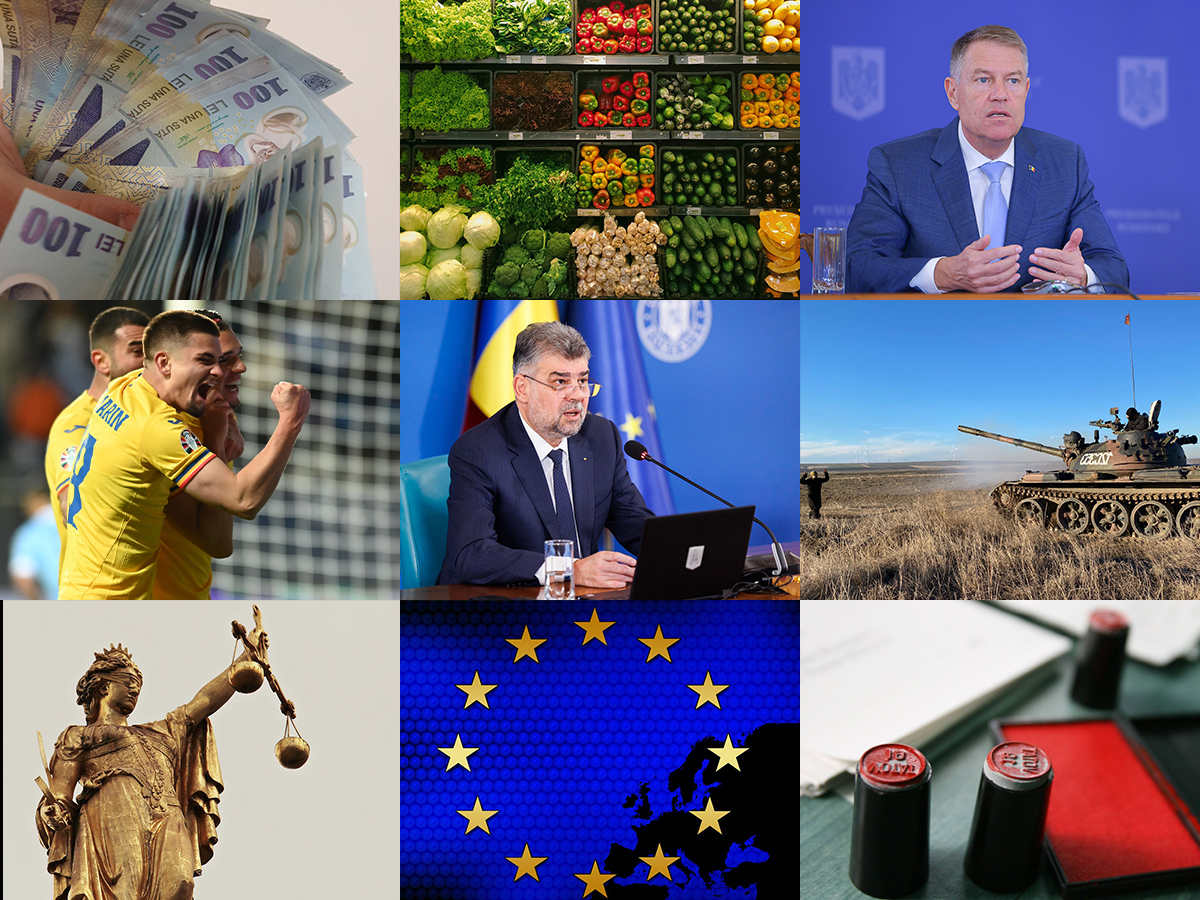THE WEEK IN REVIEW
24-28 June, 2024

Bogdan Matei, 29.06.2024, 14:12
Euro summit
The President of Romania, Klaus Iohannis, attended the European Council meeting in Brussels on Thursday and Friday. The agenda of the discussions between the heads of state and government of the 27 was dominated by the appointments to the leadership of community institutions, following the elections on June 9. As in the past term, the three major continental political families shared their top positions. Anticipated by everyone, German conservative Ursula von der Leyen has once again become the head of the Community executive, and will receive, next month, the investiture vote in the European Parliament. The new head of European diplomacy will be the current Liberal Estonian prime minister Kaja Kallas, and the European Council will be managed by Portuguese Socialist Antonio Costa, former prime minister in Lisbon. Maltese Roberta Metsola, from the Popular Party, remains president of the Parliament for at least another two and a half years, when she will most likely cede the position to a socialist. The portfolio that will belong to Romania in the future Commission is still being negotiated. Commentators say that Bucharest would like the economy ministry, but it is hard to believe that it will get it, and will be satisfied with the enlargement portfolio, and the future Romanian commissioner would have to manage the issues regarding the admission of the Republic of Moldova, Ukraine, and the countries of the Western Balkans.
Euro zone
The European Commission found that Romania does not meet the conditions to be able to adopt the single European currency. This is the conclusion of a report published in Brussels, which analyzes the situation in the member states of the Union that are not part of the Eurozone, but aim for it: Bulgaria, the Czech Republic, Hungary, Poland, Romania and Sweden. According to the Community Executive, Romania did not tick any of the four necessary boxes: price stability, the state of public finances, the exchange rate, and the convergence of long-term interest rates.
NATO
The 32 NATO member countries appointed, on Wednesday, Dutch Prime Minister Mark Rutte as the future Secretary General of the Alliance. Rutte (57 years old) will take over as head of NATO on October 1, from Norwegian Jens Stoltenberg, who has been in office for ten years. “I know that I will leave NATO in good hands” – wrote Stoltenberg on the X network. Analysts say that, in addition to the case of Ukraine invaded by Russian troops, Rutte will also have to manage transatlantic relations, which could be complicated by the return to the White House of Republican Donald Trump, who mistrusts European allies, whom he accuses of not investing enough in defense. The Western press writes that the appointment of Rutte has become a formality, after the withdrawal from the race, due to lack of support, last week, of Romanian President Klaus Iohannis. The press in Bucharest recalls that Rutte is a rather unpopular character here, because of his long opposition, as head of the government in The Hague, to the admission of Romania to the free movement Schengen Area.
Politics in Bucharest
Former journalist Elena Lasconi, the re-elected mayor of the Câmpulung Muscel municipality (south), is the new president of the USR, the Save Romania Union (in opposition in the Bucharest Parliament, and affiliated to the RENEW group in the European one). She received 68% of the options expressed online by the voting members of the party. Lasconi stated that, now, the reconstruction of USR begins. Her appointment takes place after the former leader, Cătălin Drulă, resigned as a result of the results of local and European parliamentary elections on June 9, when USR, associated with PMP and the Force of Right in the United Right Alliance, was far behind the PSD and PNL (in co-government), and AUR (nationalist opposition).
Politics outside Bucharest
The Central Electoral Bureau (BEC) in Romania canceled the elections for the position of mayor in the summer resort commune of Costineşti, in Constanța county (south-east), and ordered a repeat of the June 9 election on July 7. BEC admitted the request to cancel the elections made by the Social Democratic Party – Constanţa branch. In Costineşti, the Romanian press writes, the counting of the votes cast in the local elections on June 9 was repeated six times. In the end, the National Liberal candidate was named the winner of the mayoral position, to the detriment of the Social Democrat, with a difference of one vote. In an address submitted by the Electoral Bureau of Costineşti Constituency to the BEC, several irregularities were mentioned, based on supporting documents, including the fact that two people, including a Ukrainian citizen, voted without having this right.
Euro-soccer
Romania’s national football team qualified for the round of 16 of the European Championship in Germany, after a 1-1 draw with Slovakia on Wednesday evening in Frankfurt. Romania’s goal was scored by Răzvan Marin, from the penalty spot, and his success led to the team coached by Edward Iordănescu winning the group. In the first two games in the group, the Romanians beat Ukraine 3-0, and lost, 0-2, to Belgium. All four teams in the group accumulated four points each, and Romania was the leader thanks to the goal difference. In the round of 16, on July 2, Romania will meet the Netherlands, at the famous Allianz Arena in Munich. Thousands of Romanians came out in the streets after the match with Slovakia, in the big cities of the country, to express their joy for the qualification. Since the 2000 European Championship, Romania had not reached the knockout stages of a final continental or world tournament, and it is the first time in history that they win their group.



























